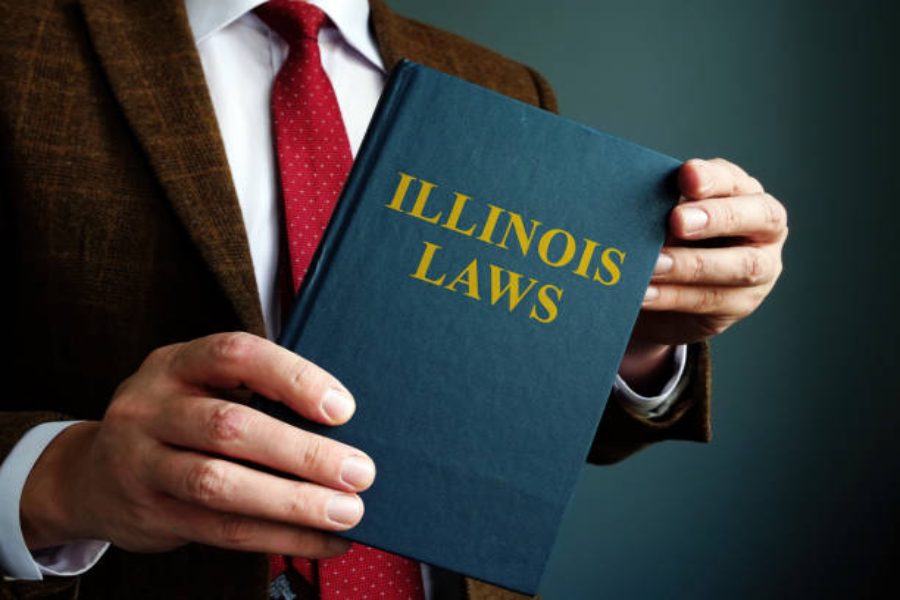After an accident, most victims focus first on getting medical treatment and dealing with immediate bills, often completely overlooking the legal deadlines tied to their case. In Illinois, pretty strict rules govern how long you actually have to file a lawsuit after being injured, and these deadlines aren’t negotiable. This period is called the statute of limitations, and missing it basically means losing your right to compensation forever.
Understanding the personal injury time limit in Illinois is absolutely crucial for anyone even thinking about legal action down the road. While the law generally provides a clear timeline that applies to most cases, exceptions definitely exist depending on the specific type of accident or the people involved in the incident.
How long you actually have to file, why these deadlines matter so much, and what exceptions might give you additional time to pursue the justice and compensation you deserve.
The Standard Two-Year Rule Most People Face
In most Illinois personal injury cases, you get exactly two years to file a lawsuit from the date your accident happened. The legal clock typically starts ticking on the actual date of the accident, not when you realized you were hurt or when medical bills started piling up. This deadline applies to common cases like car crashes, slip and fall accidents, and most workplace injuries.
Failing to file your lawsuit within this two-year timeframe almost always results in immediate dismissal of your case, regardless of how strong your evidence might be. Courts don’t really care if you have a great case with clear liability – if you missed the deadline, you’re basically out of luck. The statute of limitations is one of those legal rules that judges take very seriously.
Acting quickly after an accident protects your legal rights and helps preserve vital evidence that can disappear over time. Witness memories fade, security camera footage gets deleted, and accident scenes change in ways that hurt your case. The sooner you start the legal process, the stronger your evidence tends to be.
Special Rules When Kids Get Hurt
Illinois law makes important exceptions for cases involving minors who can’t be expected to understand their legal rights. If the injured person is under 18 years old, the statute of limitations clock doesn’t even start running until they reach their 18th birthday. This basically gives them until age 20 to decide whether to file a personal injury lawsuit.
Parents or guardians can still file lawsuits on behalf of their injured children much sooner than the child’s 18th birthday if they want to. Sometimes it makes sense to file early, especially when evidence is fresh or when the responsible party might try to hide assets. The choice depends on the specific circumstances and legal strategy.
These rules ensure that minors aren’t unfairly prevented from seeking justice just because they couldn’t understand their legal options when they were kids. It recognizes that children shouldn’t lose compensation rights due to their age and legal incapacity. The extended timeline gives them a fair chance to pursue claims as adults.
Government Claims Have Tighter Deadlines
Suing a city, county, state agency, or other government entity comes with much stricter deadlines that catch people off guard. In Illinois, claims against government entities often require formal notice within just one year of the incident, which is way shorter than the standard two-year rule. Missing this shorter deadline usually bars any chance of recovery completely.
These accelerated deadlines apply to accidents involving public property like sidewalks, government vehicles like police cars or city trucks, or incidents at government facilities. Even accidents at public schools or parks might fall under these special rules. The government basically gets extra protection from lawsuits through these shortened timeframes.
Victims should definitely consult an attorney immediately when any government involvement is suspected in their accident. These cases require different procedures and much faster action than regular personal injury claims. The paperwork and legal requirements are also more complicated than standard lawsuits against private parties.
Don’t Gamble With Legal Deadlines
Illinois law gives most accident victims exactly two years to file personal injury lawsuits, but various exceptions can either shorten or extend that critical timeframe. Minors get extra years to decide about filing, while government-related claims face much tighter deadlines that catch people by surprise. The discovery rule offers some flexibility when injuries aren’t immediately apparent, but it’s not a blank check.
Still, waiting too long seriously jeopardizes your right to compensation and weakens your case even if you technically meet the deadline. Understanding these time limits is honestly the first step to protecting yourself legally after any accident. Consulting with an experienced attorney early ensures your case gets filed on time and backed up by the strongest possible evidence.
Deadlines absolutely matter in personal injury law, and there’s usually no second chance if you miss them. Act quickly after an accident to safeguard your right to pursue justice and secure the compensation you deserve for your injuries and losses.


